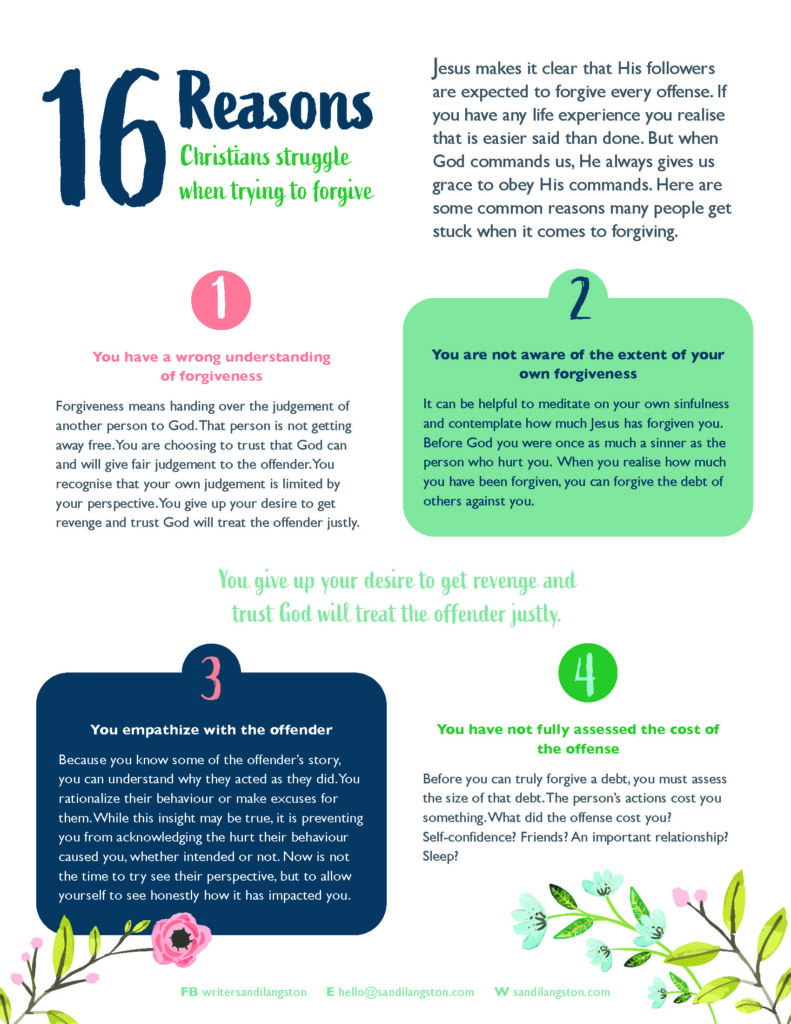Guilt: Conviction or Condemnation?
That awful feeling is back. It’s a guilty sense you can’t shake. You wish it could be easily dismissed, but even when you try it creeps up in quiet moments and in your dreams. It may be fair if it is true guilt, but what if it’s not, and how do you tell the difference?
Conviction, or true guilt, is a good thing. Like pain is a warning to the physical body that something is not as it should be, conviction is a warning to the spirit. Part of the Holy Spirit’s job in our lives is to bring conviction when we have sinned. It’s as though the Holy Spirit puts up a red flag to warn us that something is not as it should be, and to call our attention to that thing. Conviction cautions us from sinning further, just as some physical pain when you touch a burning log cautions you from continuing to hold onto that log and causing further injury.
On the other hand, condemnation is false guilt and is undeserved. It can weigh over us like a dark cloud, but unless we learn how to step out from under that cloud, it continues to plague us. Condemnation is used by the devil to keep us feeling bad about ourselves and to prevent us from being effective in our daily roles and as Christians.
Both conviction and condemnation feel like guilt. Here is how you can tell the difference:
- Check the tone
The tone the Holy Spirit uses (conviction) is always respectful and kind, and it leads us to want to cooperate (even if it feels scary).We may have an internal sense that we have sinned, or we may feel cut to the heart when someone speaks. Both conviction and condemnation can come through other people’s words, but a lot depends on the tone.
Condemnation comes with a tone of accusation or blame. It makes us feel small or stupid and often increases a sense of shame – the feeling that we are bad or something is wrong with us. Sometimes someone may say something well-meaning, but we hear it as condemnation because our internal voice is telling us that we are failing in an area.
- Is there a finite solution?
When it comes to conviction, we know exactly what we have done wrong, and we know exactly what we need to do to fix it. If I have lied to someone, I need to tell them the truth and apologise. If I have told someone I will pray for them, I need to pray for them.
Condemnation is vague and there is no specific wrong that we can make right that will bring freedom. I may have lied to someone, but even if I confess and apologise, condemnation can still plague me with thoughts such as “I am such a terrible person. I am a hypocrite. I am faking this Christian thing.” If I have forgotten to pray after promising I would, condemnation could sound like, “I’ve failed again. I can’t even do something easy for someone else. I am not trustworthy.” Note: the devil often plants thoughts in our minds in the first person, which can lead us to think those thoughts are our own.
- Does it lead to shame?
If it ends with shame, it is condemnation. We are made to feel that there is something wrong with us, and we prefer to keep that part of ourselves hidden. I might feel ashamed of my weight and how poorly I eat, so I only eat cookies when I am alone. This secret behaviour fuels the cycle of condemnation and feeling bad about myself.
Conviction may take us through shame, but once we have made right our wrong, there is no shame, and we can face people with confidence and internal freedom. When Jesus convicts the Samaritan woman at the well of her sin (see John 4), she is freed from the sense of condemnation she had lived under for years. She is filled with joy and has the freedom to face the townsfolk she had been avoiding out of shame.
Guilt says “I have done something bad” – it is an action that can be corrected. Shame says, “I am bad” and leaves us hopeless, unable to change that part of ourselves no matter how hard we try. The devil likes to heap on shame and condemnation because it keeps us from being fully free. Jesus died to remove our shame, so we may be free to relate with one another and ultimately with our Heavenly Father without any condemnation.
- What to do with conviction
When we experience conviction, the solution will be clear: make right the wrong that we have done, and there will be no need to do anything further. It may take guts to apologise or confess. We may have to swallow our pride and admit we were wrong in how we treated someone. When the Holy Spirit convicts us, the sense often stays until we follow through. Sometimes it is years later that we are convicted to pick up the phone and apologise for something that still bugs us. The feeling that comes after we have made things right is one of joy and freedom. We were truly guilty, but because of grace, we are now truly free.
- What to do with condemnation
Ultimately condemnation has no place and needs to be silenced. We need to step out from beneath the dark cloud that does not belong over us. Condemnation can be shaken off by stating truth, often the truth about ourselves. If we are feeling like a bad friend because we forgot someone’s birthday, we can remind ourselves of the truth that we care deeply about this friend, that many times we have put their needs above our own, and that we had a lot on our plate leading up to this friend’s birthday. Forgetting a birthday may make us a forgetful friend, but it does not make us a bad friend. We ward off false accusations (condemnation) with evidence of the truth. If you realise you are feeling condemned, but you are unable to shake it off, seek counsel from a trusted friend or mentor or counsellor.
The promise for all who put their faith in Jesus is that “…Therefore, there is now no condemnation for those who are in Christ Jesus, because through Christ Jesus the law of the Spirit who gives life has set you free from the law of sin and death” (Romans 8:1-2). The accusations the enemy brings against us that were once true are no longer true because Jesus has paid the penalty for our wrongs. They are now powerless accusations because our wrongs have already been made right. By God’s grace we stand free of accusation.
May you find yourself stepping out from under the cloud of condemnation. May you have the courage to follow the promptings of conviction. May you live more fully in the freedom God has designed for us to experience in Him.
Sandi
What stands out to you most about the difference between conviction and condemnation? Share with us in the comments section below!



